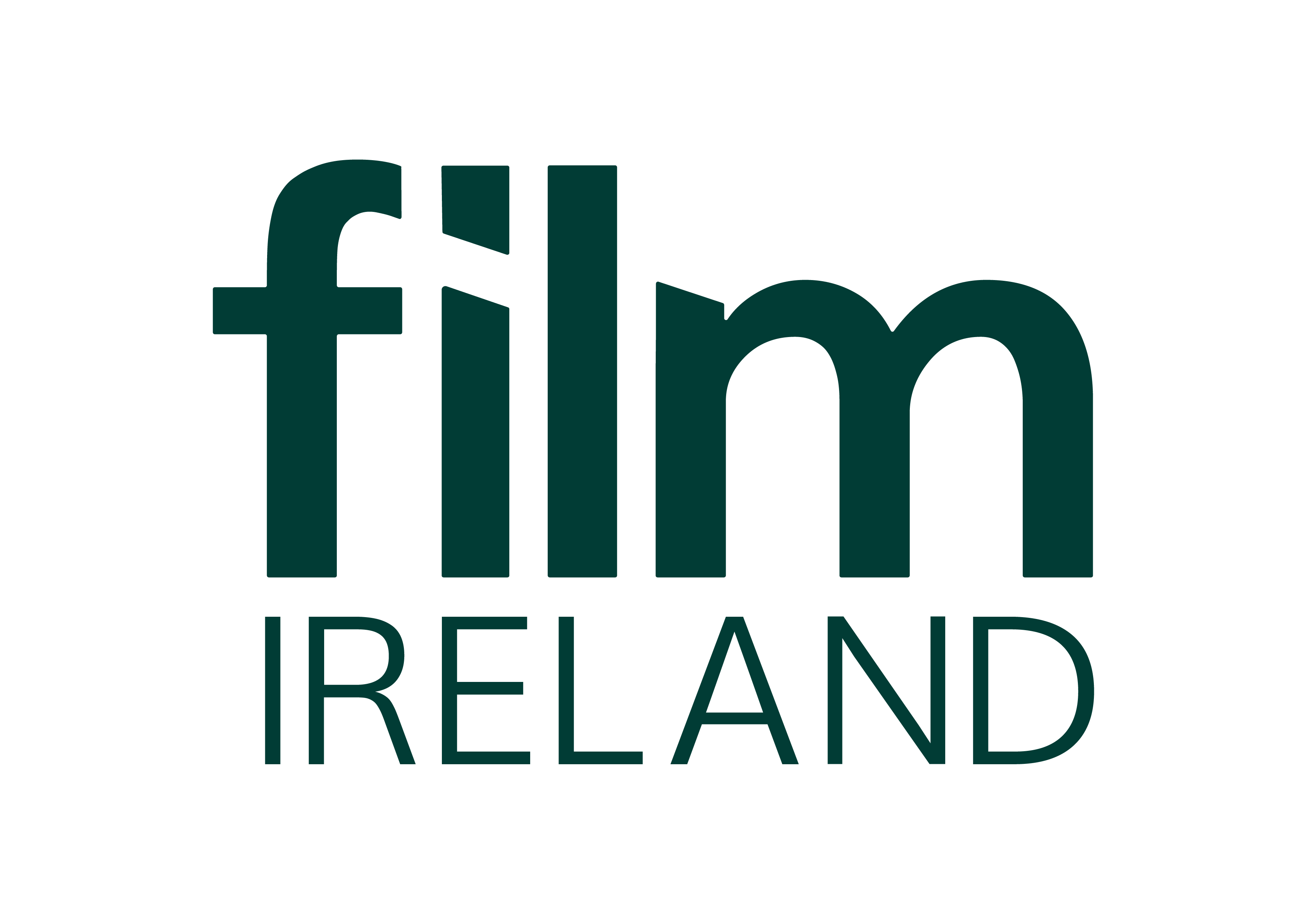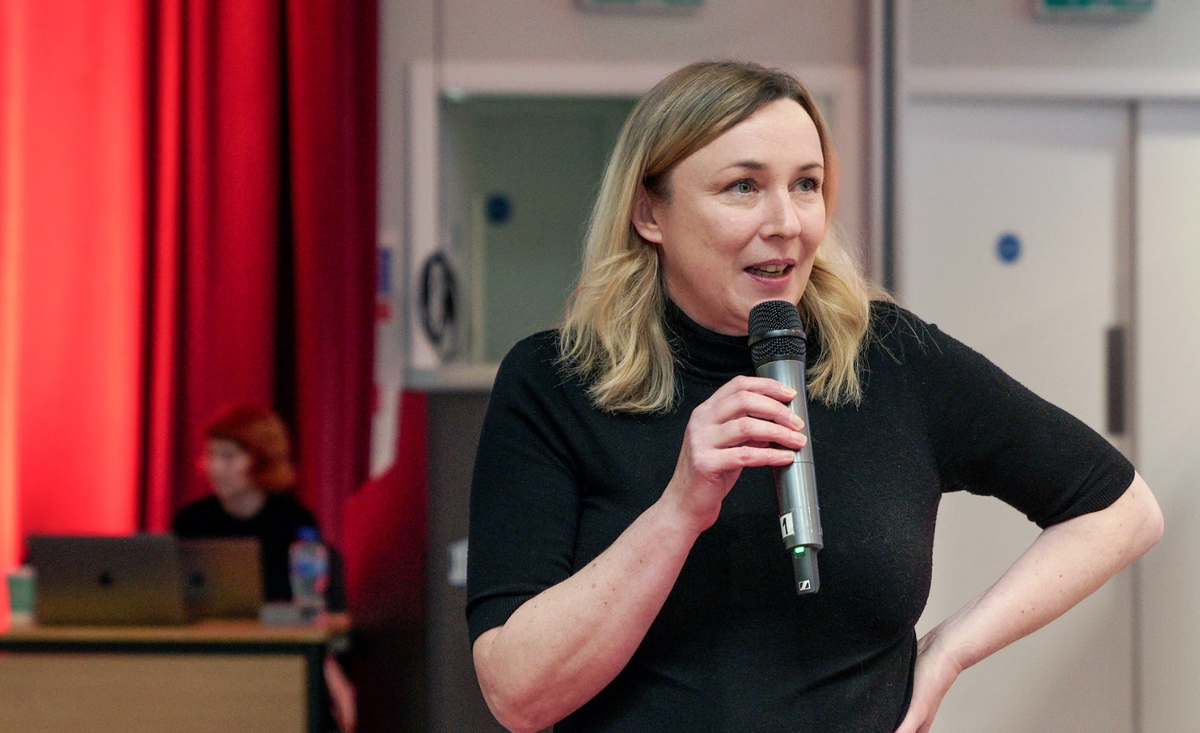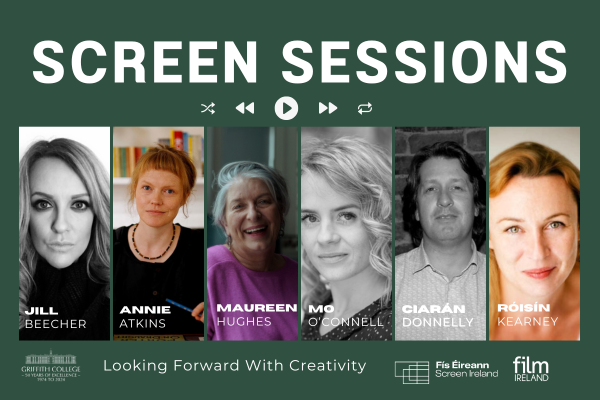From directing RTÉ docuseries Keep It Up to helming prize-winning shorts, to developing her feature and series with Screen Ireland support, Róisín Kearney is a filmmaker in full flight. Now, her latest short, The Laughing Boys, is set to premiere at the Galway Film Fleadh, and her recent win at Fastnet Film Festival has her poised to shoot her most ambitious drama yet. But Róisín’s creative voyage wasn’t always smooth sailing. In this article, Associate Editor Gemma Creagh chats with Kearney about setbacks that almost derailed her career, those key moments of celebration and the lessons she’s learned along the way.
The odds were one in four, as writer/director Róisín Kearney took to the stage on Friday, 23rd May 2025 to a room teeming with cinephiles and professionals from all corners of Ireland’s screen industries. Names like Ciaran Donnelly, Aidan Gillen, Rebecca Miller, Nicola Coughlan, Maria Doyle Kennedy, Lenny Abrahamson, Domhnall Gleeson, Bill Pullman and Barry Keoghan had descended on the small Cork town of Schull and Fastnet Film Festival was in full swing. But for Róisín, everything was hanging on the next ten minutes.
She was one of four finalists, selected from 71 entries, for the coveted Puttnam Script Award. The brief was simple: write a ten-minute short inspired by the theme "Safe Harbour". On the judging panel sat Emma Norton and Chelsea Hoffman of Element Pictures, Jean van Sinderen-Law from UCC, with David Power of John Kelleher Media moderating. They were doing the honours of selecting the next creative project to be backed by Lord David Puttnam.
To the packed-out venue, Róisín delivered her emotive pitch, a story about a young boy, moved by his grandfather’s disoriented pleas to return to the place of his birth. He breaks him out of a nursing home and uses his Confirmation money to take him home to ‘the Island’.
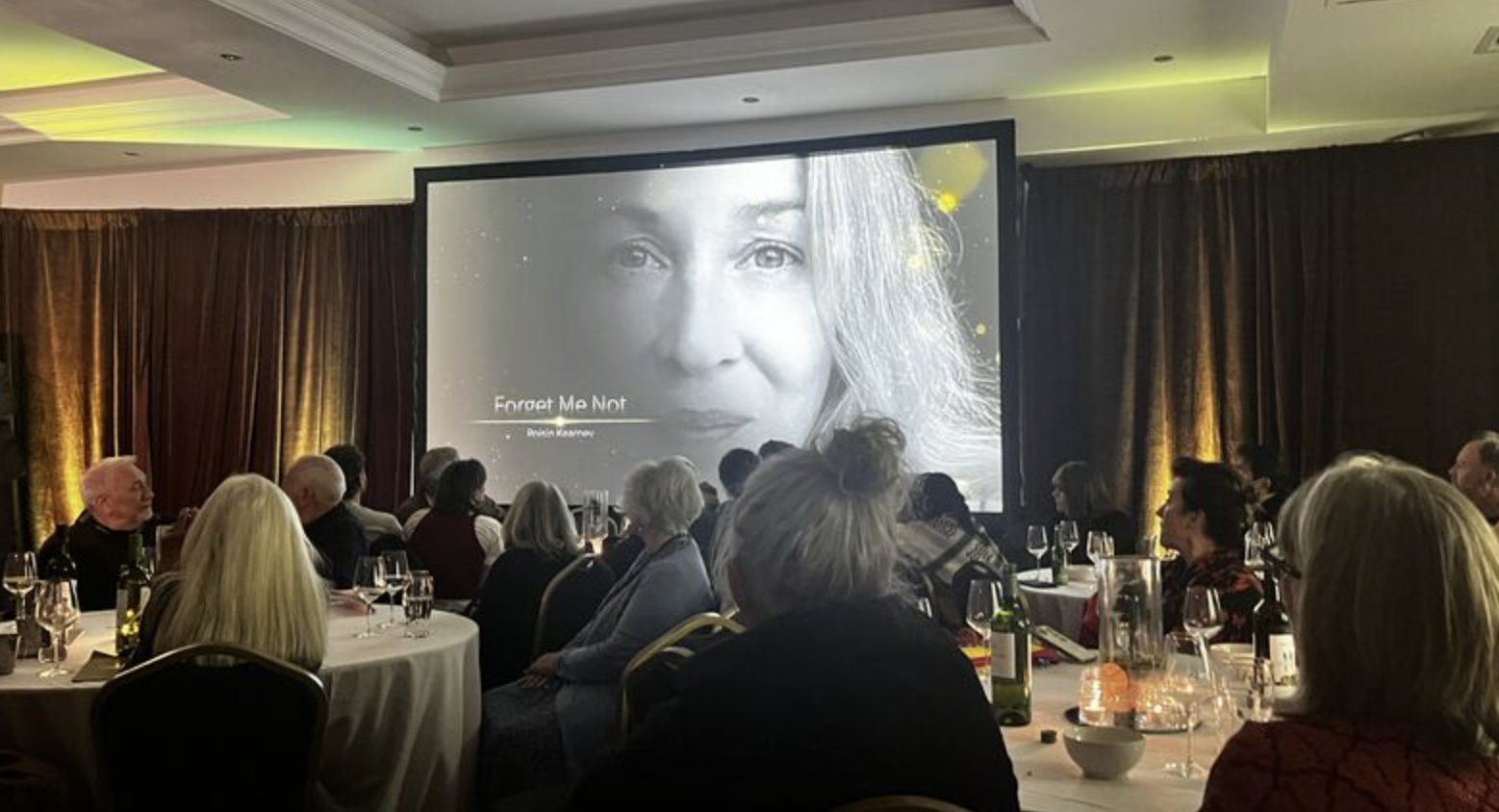
Two days later, at Sunday night’s ceremony, to a bustling room filled with tipsy filmmakers, Róisín Kearney was announced as the winner. She had won the €25,000 award, and with it, the opportunity to bring her concept to the screen. “Forget Me Not was one of the first shorts I ever wrote,” Róisín reflects. “It won Best Script at Waterford International Film Festival in 2017, but I don’t feel I could have done it justice as a director until now. Things happen when they’re meant to.”
Enter Stage Left
With a slate of festival-winning shorts under her belt, her documentary series on RTÉ, and numerous long-form projects in development with Ireland’s top production companies, to any outsider Róisín’s win seemed inevitable. However, looking back eight years to when she first penned that script, or even a few years before that, this all seemed nearly impossible. Between her role as a carer, leaving theatre, motherhood, from inner-city communities to festival stages, Kearney has navigated so many worlds in that time. And for her, each one is bubbling over with stories, which bring depth and nuance to her work.
“Your voice is your perspective on the world. It is your take on it. My world was broad growing up. My family was political, I was at my first march in a pram. A father from the North of Ireland, living in inner-city Dublin during the worst of the troubles and heroin epidemic. My mother was a community social worker before moving to forensic psychiatry in the CMH (Central Mental Hospital). Our dinnertime conversations were possibly a little different to most. But this made me think about the impact of circumstance, the best and the worst of society and all the shades of grey in between. I love people, I love trying to see the world through their eyes and trying to understand their thought process, especially those that are different to mine.” Always asking why and how they came to that understanding of the world.
This has not only shaped how Róisín sees the world but how she approaches the subjects in her scripts. “Diversity is more than a box to be ticked, it is a reflection on the world we occupy. We can only be representative when creators are allowed the freedom to express their voice without limit.
If you feel discomfort, imagine living in a world where you are made to feel that as the default. How the world treats you differs depending on who they think you are - and how they value you because of it.”
For Róisín, her journey into the arts started with theatre. She began as a tech, employed through a Community Employment scheme in the City Arts Centre. Her time here was hands-on, moving from lighting design to acting, then on to stage and production management. She toured extensively, supporting an array of live performances, building her skillset as she went. During her time at The Ark, she found herself working under literary giants like Roddy Doyle, John Banville and Pat McCabe, while collaborating with dancers, animators and circus performers.“I learnt so much,” she reflects. “There was always this sense that art could come from anywhere. That no matter your role in the building, your opinion counted.”
At this stage in her career, the world of film was something she dipped into occasionally, working in just about every department possible on low-budget projects. As a young creative, an emerging artist, an enthusiastic crew member, her professional calendar was packed solid.
But then came motherhood.
And with that, radio silence on the job front. “My career came to an abrupt and unapologetic end when I had my eldest child, suddenly there were no calls when I couldn’t work 14-hour days, 7 days a week or go on tour. It honestly shocked me,” Róisín was devastated. She faced the same problems that so many carers still face today, despite lobbying by organisations such as Raising Films. Dropping back down to part-time or working lower responsibility time-intensive roles was simply not financially viable with childcare. Due to the low wages paid in the arts, she was forced to step back almost completely from the career she had worked so hard to forge.
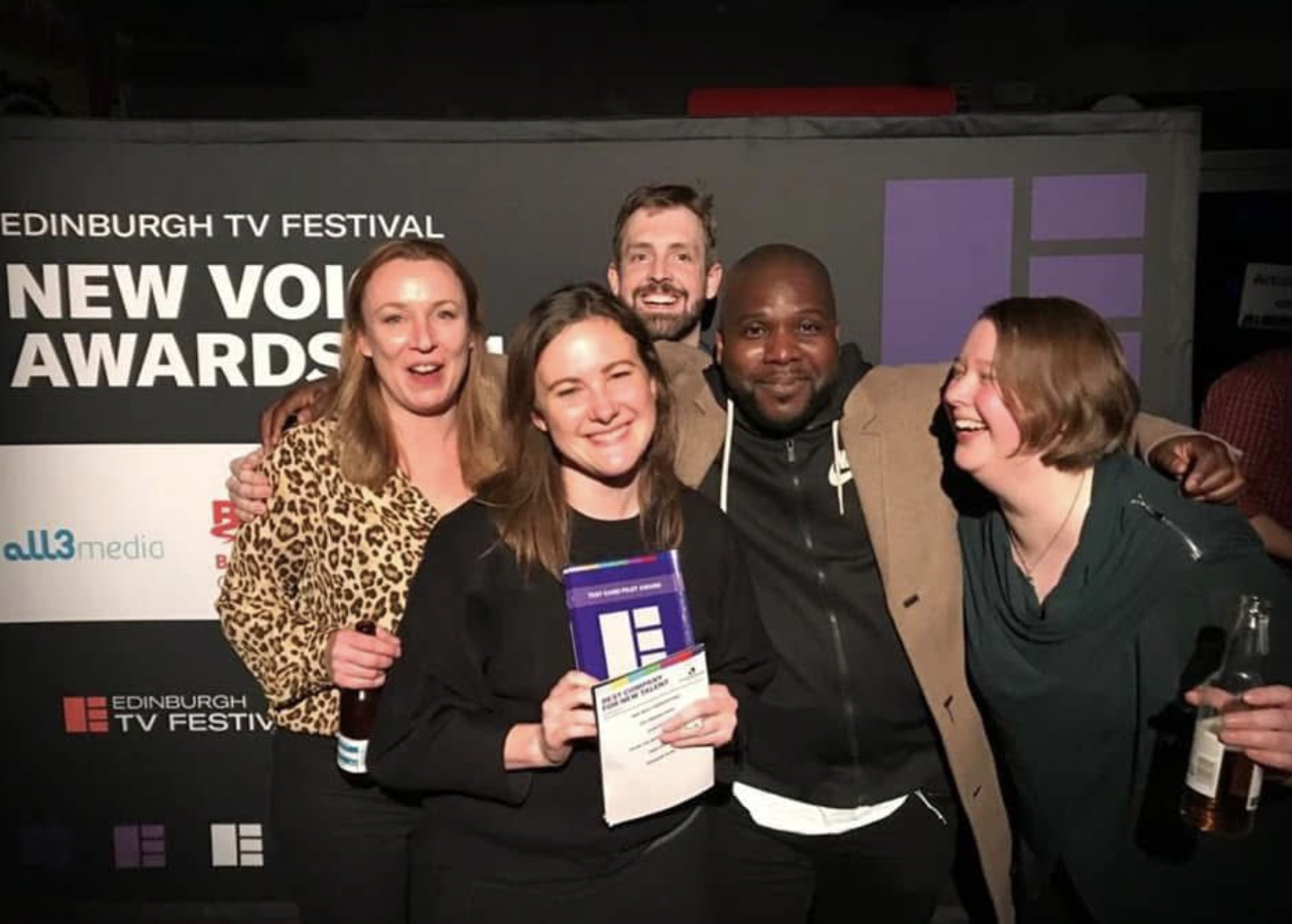
Focus Shift
In the years leading up to her career break, Róisín had often found herself acting as an accidental gender consultant, before it was even a recognised role, under the guidance of the forward-thinking Ferdia MacAnna. She had been writing and developing female characters for RTÉ pilots. So when writer and producer Triona Campbell offered her work doing script coverage, Róisín jumped at the chance.
During this downtime, she enrolled in a screenwriting class at Filmbase with Eilish Kent. “I was out of the loop. Dyslexia made things so much harder. But that course gave me a push.” After a semester developing her writing on Mary Kate O Flanagan’s feature development programme, Róisín emerged with her first full-length comedy screenplay, and a strong desire to muck in.
In 2015, when Róisín’s youngest turned seven, she was finally able to say yes when opportunity came knocking… as long as it fits around school runs, work schedules, and thanks to some generous fellow mammies who helped with childcare. The opportunity in question came via Academy Award-nominated writer Naomi Sheridan, who had recently returned from New York and had plans to direct. Her first port of call was Róisín. “We sat in the car one night and decided to make a short film, which turned into two, shot back-to-back.” Róisín had never produced for film before, but she’s always been partial to a baptism of fire. The pair leaned on Filmbase for advice, called in Triona for support, and even roped in Triona’s husband, Nuno Bernardo, to help with ADR and the sound mix. Soon, Róisín and Naomi were travelling to festivals with We Have Each Other and Prodigy.
Now that Róisín was back on set, there was no stopping her. She went on to write, direct and/or produce a series of beautiful, award-winning films, including The Family Way, No Dogs, Algorithms, Run and The Ferry. Throughout it all, filmmaking was never a solo pursuit for Róisín. “It’s a team game. Filmmakers supporting filmmakers is the only way we survive.”
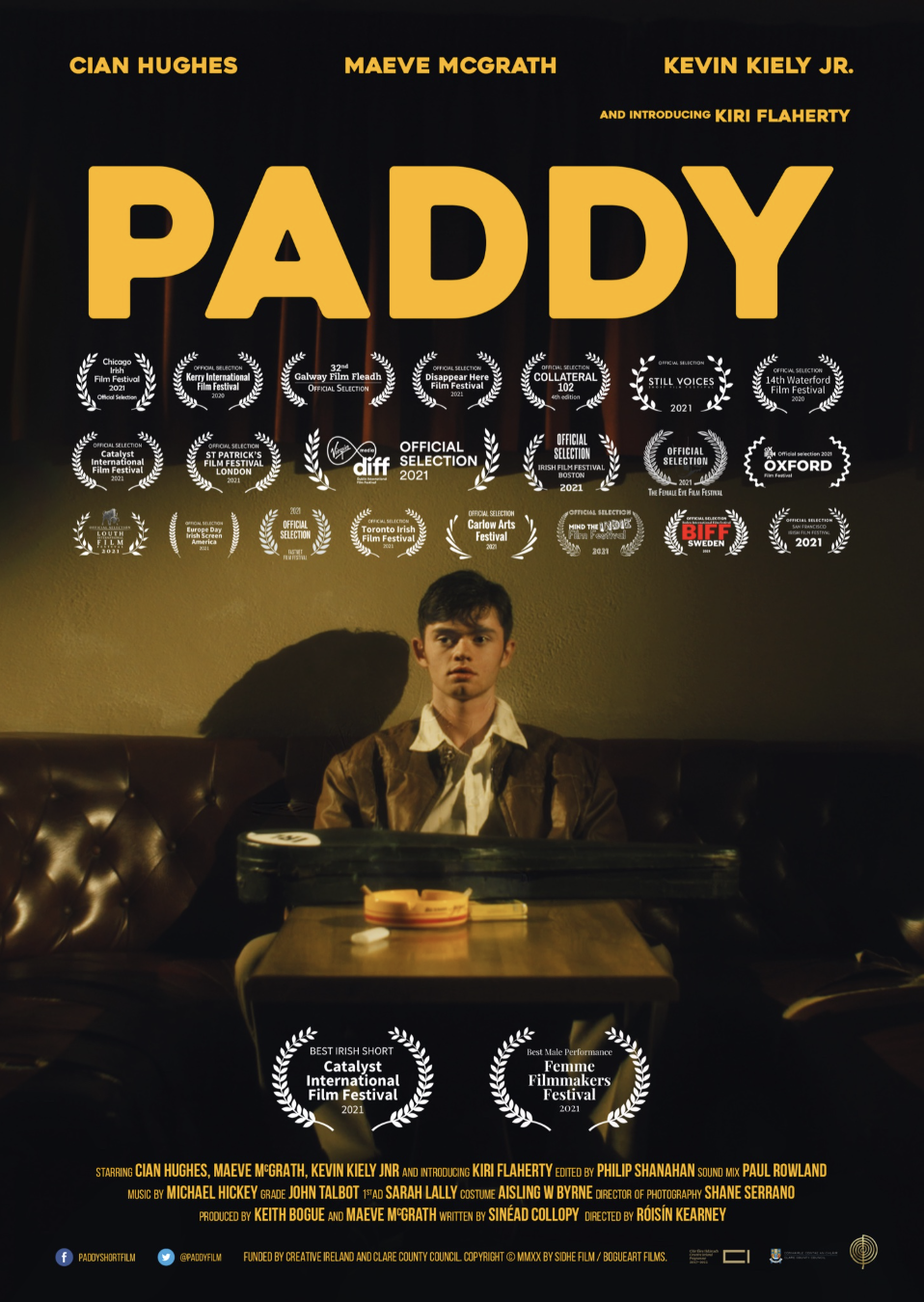
The short that truly gave Róisín a chance to test her directorial chops was PADDY, a moving, ambitious period film about identity, with Limerick standing in for 1970s London. “I got a call from the fabulous Maeve McGrath asking if I’d direct a script that was then called This Is Me.” Produced by Maeve and Keith Bogue, and written by Sinéad Collopy, the film went on to tour extensively and win multiple awards. “It was a whirlwind,” Róisín says. “I loved every second of the shoot with an amazing cast and crew.” Much of its festival run happened during Covid, so it took some time before she could watch it with an audience - but when she finally did, it was a fantastic experience. Starring newcomer Cian Hughes and nine-year-old Kiri Flaherty, PADDY marked a turning point in Róisín’s career. She carried its momentum - and its ethos - into every project that followed. “Every second of screen time counts.”
Dose of Reality
Lockdown hit just as Róisín had finished casting the RTÉ TV show GamerMode, where she worked as associate producer for Roundstone Media. She was also busy casting and producing the award-winning radio drama The Adventures of a Young Pirate Queen. Written by Triona Campbell, the series was recorded in bedrooms during lockdown and broadcast on RTÉjr Radio, with all three seasons now available to stream on the RTÉ Player. But it was when producer Cúán Mac Conghail came calling that Róisín got to helm her own series…
Keep It Up is a hybrid documentary TV series for RTÉ, directed by Róisín for Macalla Teoranta. Over six episodes of drama and emotions, Emer O'Neill brings together a group of nine teenage girls who have either dropped out of sport or never played. “I was directing young people, with an all-female crew. Eleanor Bowman on camera; Sue Downey on sound. It was everything I love: collaboration, purpose, energy.” Róisín notes the differences between drama and documentary, “Both serve an audience. Both tell stories. In doc, there’s more writing than people think - before, during, after. You just don’t call it a script.”
Just as her career was beginning to take off again, Róisín received the devastating diagnosis of breast cancer. Around the same time, she also lost a close friend to the same illness. So, just as professional doors were opening, she was forced to take another step back, managing her own illness under the weight of grief and overwhelming guilt. Healing is a process, but thankfully, Róisín has since been given the all-clear. “It took time,” she says. “I was terrified it would set me back, but people are good, Triona, Caroline, Cúan, the two Davids from Stowe Labs, and Mary Moynihan from Smashing Times, they all got me going again.”
Road to Recovery
When asked what inspires her writing, Róisín’s response is definite:
Life! We are there to explore it, reflect it, and question it.
"...It is our job to entertain, to move, to excite, to bring joy and devastation to the people we serve - an audience. People are layered, so the characters and stories we write are layered.”
Support from Screen Ireland provided an on-ramp for Róisín’s return to the industry; she received development backing for her YA feature Spoke and comedy series RIP. She was placed on fellowships with Stowe Labs and MediaXchange. She’s just finished working on The Laughing Boys film with long-time collaborator Caroline Grace-Cassidy. Now her psychological thriller Patrius and neurodivergent-centred comedy St. Nick are moving into the next stages of development.
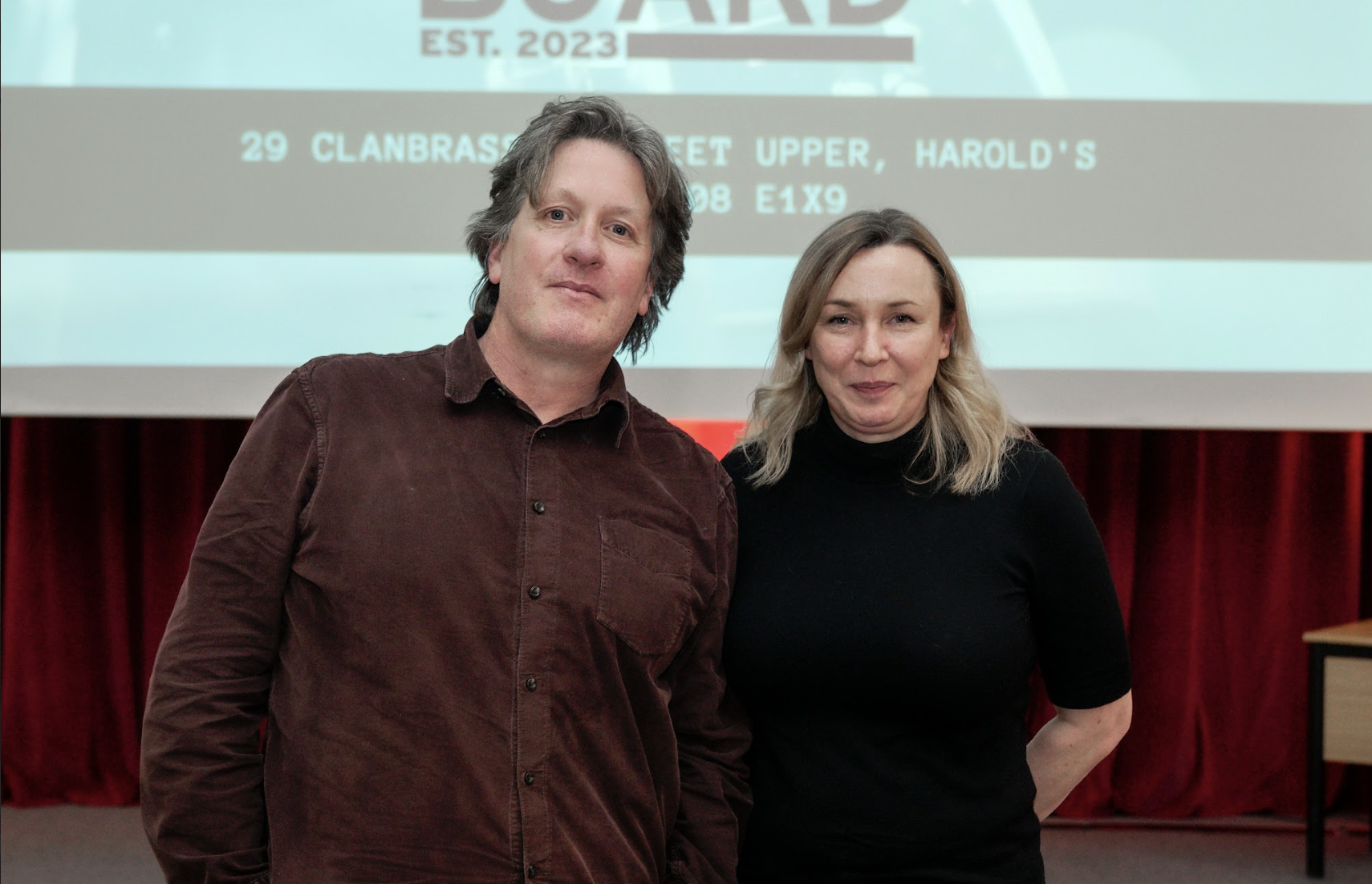
For anyone looking to walk the same path, Róisín notes the key advice that helped her: “Be brave. Be scared but do it anyway. Get help and advice from anyone who will give it to you. Listen to people who know more than you. Like everything, it's all in the rewriting, even if you end up back at draft one. But our stories come from somewhere deep inside us, so be honest, if it is not an emotional journey for you it won’t be for your audience either.”
Next on the Slate
And now, with the support of the prestigious Puttnam Award, Róisín gets to make one of the first shorts she ever penned, attracting internationally acclaimed talent both in front and behind that camera. “I wrote it after watching my kids interact with their granny in a nursing home,” she remembers. “I wanted to celebrate the quiet bravery and instinctual fairness of the young and the human dignity of the old that too often is undermined or ignored. I wanted to explore how a tragedy in childhood can lead to a trauma that spans generations, and how that trauma might be healed.”
Last May at the Fastnet Film Festival, all eyes were on Róisín. She stepped up, delivered, and - in complete shock - walked away with the win. This wasn’t just a recognition of one short film idea, though rather a culmination of everything it took to get there: the complexity of life that feeds imagination and storytelling; the ups and downs that inform perspective and openness to continue learning.
And one final take away for filmmakers from Róisín? "In this crazy industry with constant pressure and deadlines, make sure to take some time to prioritise you, check in with Minding Creative Minds. And don't forget to check your boobs. It might just save your life."
The Laughing Boys screens at Galway Film Fleadh on Friday the 11th July in the Town Hall Theatre. Get your tickets here.
